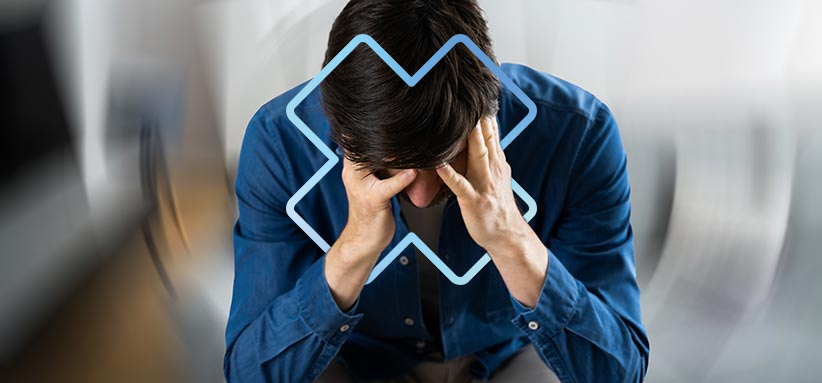Dizziness and vertigo are symptoms that may signal an underlying health problem and increase the risk of falls or accidents. They can also greatly impact overall quality of life. Vestibular rehabilitation through physiotherapy is an effective treatment method to reduce or eliminate your symptoms.

Vertigo or dizziness: What’s the difference?
Often confused, vertigo and dizziness are two distinct symptoms.
- Vertigo is the sensation that you or your surroundings are spinning or moving.
- Dizziness feels more like lightheadedness, as if you were on a boat or slightly intoxicated.
These sensations result from conflicting signals sent to the brain by vision, the balance system (through body joints), and the vestibular system (located in the inner ear).
What can cause dizziness?
Dizziness is associated with various health conditions, including:
What can cause vertigo?
Vertigo results from specific impairments of the vestibular system located in the ear, which is responsible for balance. Conditions like benign paroxysmal positional vertigo (BPPV) and Ménière’s disease are examples. Contrary to popular belief, fatigue or overwork does not cause vertigo but may cause dizziness.
What causes labyrinthitis?
Labyrinthitis is caused by a bacterial or viral infection that leads to inflammation of the vestibular system in the inner ear. Symptoms include:
- Hearing loss or onset of tinnitus (ringing or buzzing in the ears);
- Loss of balance, nausea, and vomiting;
- Vertigo triggered by head or eye movements, such as reading or seeing moving objects like balloons or windshield wipers.
Vestibular Neuritis (Neuronitis) vs. Labyrinthitis
Labyrinthitis is often confused with vestibular neuritis because they present similar symptoms. However, vestibular neuritis does not involve hearing-related symptoms (no hearing loss or tinnitus). It is typically caused by a viral infection.
Although full recovery from labyrinthitis or vestibular neuritis can take several weeks, you can progressively resume your activities as symptoms improve.
Frequently Asked Questions (FAQ)
Can a stroke cause vertigo?
Yes, a stroke can cause vertigo. Usually, other associated signs are present, such as:
- Difficulty seeing;
- Difficulty hearing, speaking, or confusion;
- Severe, unexplained headache;
- Difficulty walking, balance issues;
- Weakness or numbness in the face, arm, or leg, especially on one side.
If these signs appear, call 911 immediately. See Health Canada’s website for more information.
Are vertigo symptoms permanent?
Most of the time, vertigo resolves once the underlying cause is treated. However, some rare conditions, like vestibular migraines or Ménière’s disease, may lead to recurring vertigo that can be difficult—or impossible—to completely eliminate. These conditions must be diagnosed by a physician.
How to treat labyrinthitis, vertigo, and dizziness
Expert tip: Focus on safety and breathe
If you are experiencing dizziness or vertigo, it’s crucial to implement strategies to reduce the risk of falls or accidents. Using a cane for stability and avoiding driving is strongly recommended.
Dizziness and vertigo can understandably cause anxiety. If symptoms occur, sit down, take deep breaths, and wait for symptoms to subside in a safe environment.
Vestibular rehabilitation through physiotherapy
Vestibular rehabilitation is an effective way to decrease dizziness and vertigo, whether they are recent or have been persisting for months or even years. Even if your symptoms are severe, you can start treatment and quickly benefit from guidance and reassurance.
This approach is often carried out in collaboration with a physician, ENT specialist, and sometimes a pharmacist if medication is involved.


